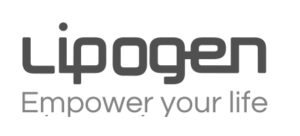Study 1: Cognitive & Mood Improvement in Elderly & Alzheimer’s Patients
Positive Effects of Soy Lecithin-Derived Phosphatidylserine plus Phosphatidic Acid on Memory, Cognition, Daily Functioning, and Mood in Elderly Patients with Alzheimer’s Disease and Dementia
Subject Size:
- Study 1: 72 elderly individuals (aged 60–80 years) with memory problems
- Study 2: 96 Alzheimer’s disease (AD) patients (aged 50–90 years)
Dosage:
- Study 1: 300 mg Phosphatidylserine (PS) + 240 mg Phosphatidic Acid (PA) per day for 3 months
- Study 2: 300 mg PS + 240 mg PA per day for 2 months
- Study 1 – Elderly with Memory Problems
- Study 2 – Alzheimer’s Disease Patients
- Memory Improvement (WMS Total Score):
- PAS group: 3.5% increase (p < 0.001)
- Placebo group: 3.3% increase (p < 0.03)
- Visual Memory Improvement:
- PAS group: 10.6% increase (p < 0.01)
- Number Memorization Improvement:
- PAS group: 7.0% increase (p < 0.01)
- Mood Improvement (LDS Depression Scale):
- Placebo group: Significant increase in depressive symptoms (p < 0.001)
- PAS group: No significant change (p < 0.4)
- 7-ADL (Daily Functioning Index) Change:
- PAS group: No decline (Baseline: 6.23 → After 2 months: 6.23)
- Placebo group: Decline from 5.62 to 4.90 (p = 0.039)
- Daily Functioning Stability:
- PAS group: 90.6% stability
- Placebo group: 79.5% stability (p = 0.066)
- Improved General Condition (Self-Reported):
- PAS group: 49.0% reported improvement
- Placebo group: 26.3% reported improvement (p = 0.084)
- Continuation of Supplementation Post-Trial:
- PAS group: 42.9% continued supplementation
- Placebo group: 0% continued supplementation (p = 0.010)
CONCLUSION
PS+PA supplementation significantly improved memory, mood, and cognition in elderly individuals with memory impairment. It also stabilized daily functioning and emotional state in AD patients.
Study 2: Effect of PAS on Psychological & Hormonal Response to Mental Stress
Effects of Soy Lecithin Phosphatidic Acid and Phosphatidylserine Complex (PAS) on the Endocrine and Psychological Responses to Mental Stress
Subject Size
80 adults (aged 20–45 years), divided into four groups of 20 subjects each
Dosage
- 400 mg PAS/day
- 600 mg PAS/day
- 800 mg PAS/day
- Placebo group
The PAS supplement contained Phosphatidylserine (PS) + Phosphatidic Acid (PA) from soy lecithin.
RESULT IN PERCENTAGE
Reduction in ACTH Response to Stress (Trier Social Stress Test - TSST)
▪ 400 mg PAS group: Significant blunting of ACTH response (p = 0.008)
▪ 600 mg and 800 mg PAS groups: No significant effect
Reduction in Serum Cortisol Response to Stress
▪ 400 mg PAS group: Significant 20% reduction in cortisol response (p = 0.015)
▪ 600 mg and 800 mg PAS groups: No significant effect
Reduction in Salivary Cortisol Response to Stress
▪ 400 mg PAS group: Approximately 80% blunting of stress-induced salivary cortisol increase compared to placebo (p = 0.015)
Reduction in Psychological Distress (Spielberger State Anxiety Inventory - STAI)
▪ 400 mg PAS group: Significant decrease in stress-related distress (p = 0.05)
▪ Placebo group: Expected increase in distress
Effect on Heart Rate
- No significant effect observed in any PAS group.
CONCLUSION
The 400 mg PAS dose effectively reduced the HPA-axis stress response, lowering ACTH, serum cortisol, and salivary cortisol levels under stress. It also decreased perceived distress in response to a psychological stressor (TSST). However, higher doses (600 mg and 800 mg) did not provide additional benefits, suggesting a dose-dependent effect with optimal results at 400 mg/day.


